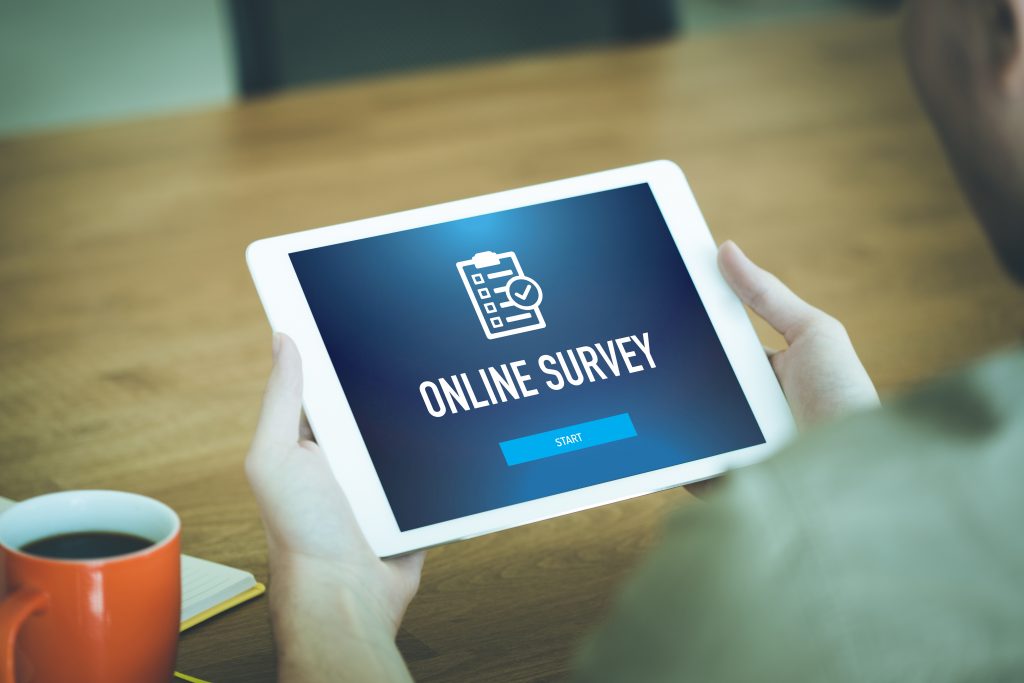Surveys are an essential source of information for business, government, academia, and the public. However, times have changed, and especially in this pandemic era, it is necessary to adapt to new approaches to conducting surveys. To keep up with this changing world and its ways, it is essential to keep an eye on current and proposed methods and practices. To be an innovator, one needs to know how new technology and tools influence surveys. We also need to put our thoughts into how people interact with surveys.
Survey data collection protocol can be broken down into three broad categories viz: a ) Paper-based interviewing (PAPI), b) computer-aided personal interviewing (CAPI), and c) Computer-Assisted Web Interviewing (CAWI) and Online Survey. Over time and with the advent of technology, data collection methods have changed a lot, and there has been a shift towards CAWI or online surveys. Online surveys offer several advantages over other formats- timely/ real-time data collection, outreach to a broader audience base, and are comparatively inexpensive costs. The key differentiators for online surveys are:
Time is money, and online surveys are a great way to save time.
Online surveys help respondents complete surveys conveniently. Further, if surveys are made interactive, the data collection process is faster and easier, cutting down on the total time to complete the surveys. People also don’t get tired or frustrated with the interview, and interactive surveys can also be fun.
Online surveys are inexpensive
Online surveys cost a lot less than CAPI and even CATI surveys. Any person or organization collecting data will have to consider the resource implication. This factor will critically influence people’s data collection choices in the future.
Online surveys have better reach
One of the main benefits of a web survey is reaching a wider group of people. In the case of online web surveys, one can reach out to billions of people simultaneously by using the power of social media or mobile apps.

Real-time data collection and analysis
One of the essential advantages of an online survey is that the data can be collected and analyzed right away. One can capture and analyze data with near real-time efficiency, where there is no time lag between data collection, cleaning, and analysis.
Analytical software solutions are also available for analyzing data in real-time. This is called “real-time analysis.” Users can also create interactive dashboards that can be shared with team members and clients to make real-time decisions about the project.
Better data quality
Quality is one of the main reasons people switch from paper surveys to CAPI and online surveys. Technology interfaces are being used to make sure data quality checks are in place, and any problems that arise during the data collection process are quickly shared with researchers. Validity checks, range checks, and logical checks are a few of the data quality assurance protocols one can use. These checks work on a real-time basis and give surveyors clues about what to look for while collecting data.
Automation and privacy
As soon as the survey is done, all the completed data files are sent back to a cloud-based database server. Automated reports are generated from the database about how much data has been collected and with what efficiency. One can also set up a double encryption process to ensure data security and privacy.
There are several online software available in the market like SurveyMonkey and Typeform, to name a few. However, the online survey space is getting more competitive by the day. SurveyPoint by Frameanalytics is one of the next generations of online survey software solutions. It helps users interactively create surveys. The platform makes it easier to create professional-grade surveys. It lets users sign in, look at, and analyze compiled, clean, high-quality data. The SurveyPoint platform has built-in basic and advanced analytical options that make it easier to see the data and create interactive Dashboards and Reports. Surveys can also be shared on various social media platforms, such as Facebook, Twitter, LinkedIn, WhatsApp, etc., and can also be embedded on other websites.
Kultar Singh – Chief Executive Officer, Sambodhi



